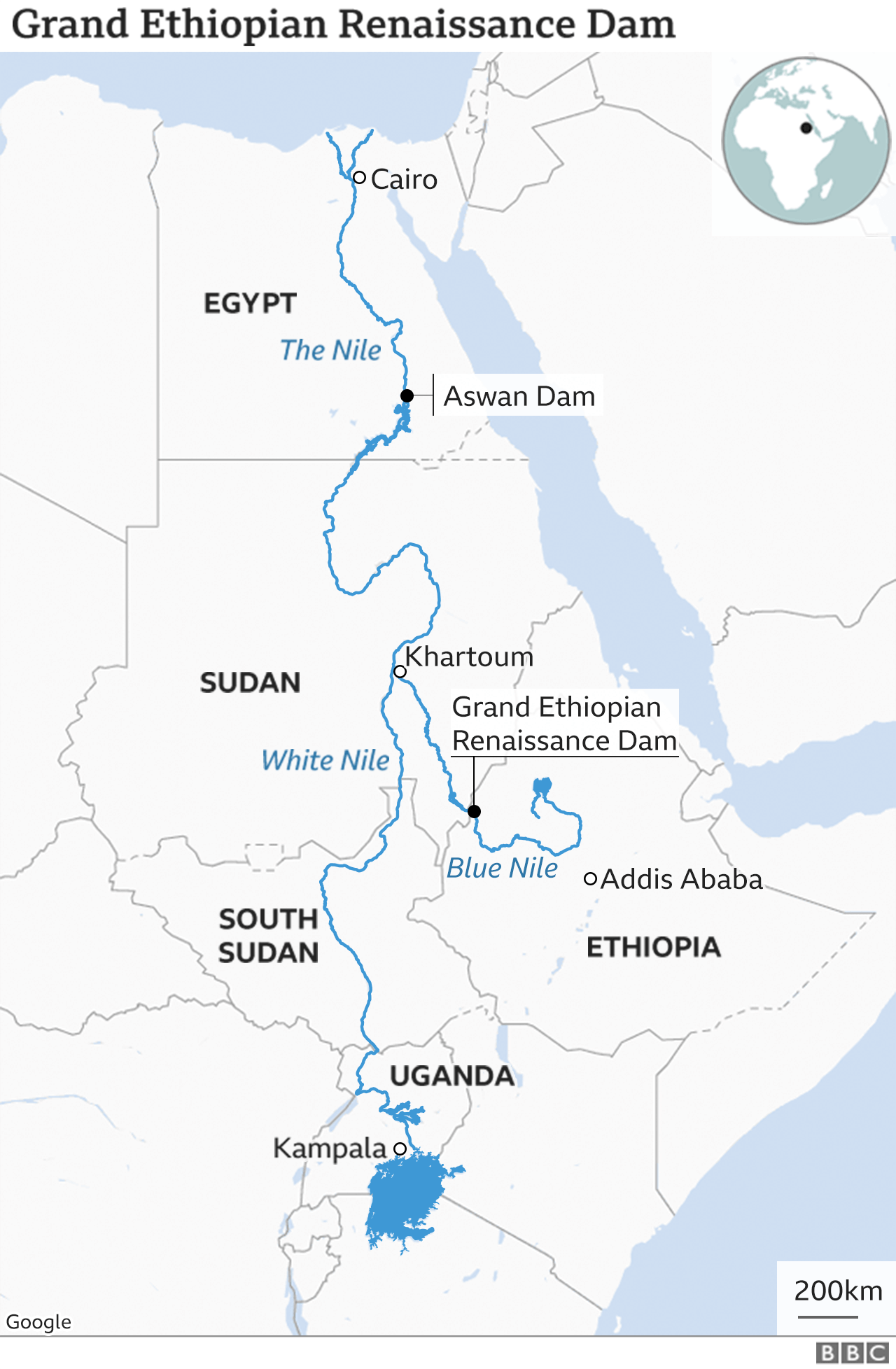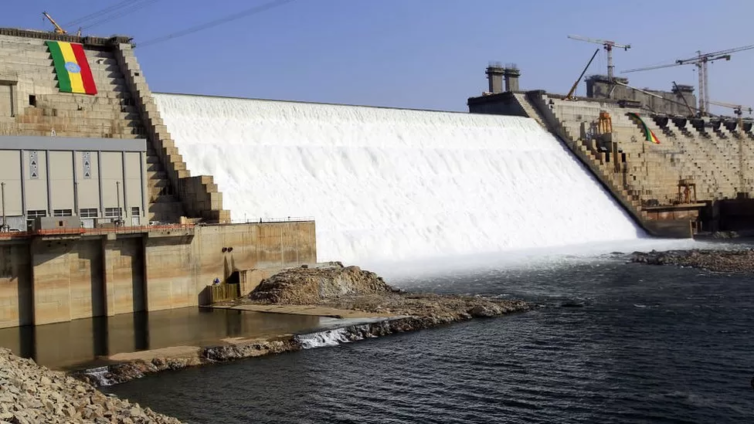Egypt has voiced anger after Ethiopia announced it had filled the reservoir at a highly controversial hydroelectric dam on the Blue Nile river.
Ethiopia has been in dispute with Egypt and Sudan over the megaproject since its launch in 2011. Egypt relies on the Nile for nearly all its water needs.
Egypt's foreign ministry said Ethiopia was disregarding the interests of the downstream countries.
Ethiopia says the $4.2bn (£3.4bn) dam will not cut their share of Nile water.
"It is with great pleasure that I announce the successful completion of the fourth and final filling of the Renaissance Dam," Ethiopian Prime Minister Abiy Ahmed said on X, formerly Twitter.
He admitted the project had faced "internal and external obstacles" but "we endured all that". The dam began generating electricity in February 2022.
Ethiopia believes the Grand Ethiopian Renaissance Dam (Gerd) will double the country's electricity output, providing a vital development boost, as currently half the 127-million population lacks electricity.
The plan is to generate more than 6,000 MW at the dam, which is about 30km (19 miles) from Ethiopia's border with Sudan.
Egypt and Sudan argue that common rules for the operation of Gerd must be agreed, fearing that energy-hungry Ethiopia may exacerbate their existing water shortages.
Negotiations over the project resumed last month, having been suspended in 2021.
Sudan - currently mired in fighting between rival armies - did not immediately react to Prime Minister Abiy Ahmed's announcement on Sunday.
In a statement on Facebook the Egyptian foreign ministry said Ethiopia's "unilateral" filling of the reservoir violated a declaration of principles signed by the three countries in 2015, and branded Ethiopia's action "illegal".
"The declaration of principles stipulates the necessity of the three countries reaching an agreement on the rules for filling and operating the Gerd before commencing the filling process," the statement said.
"Ethiopia's unilateral measures are considered a disregard for the interests and rights of the downstream countries and their water security, as guaranteed by principles of international law."

Latest Stories
-
NSMQ 2025: Osei Kyeretwie SHS students sacked from quiz hall for disobeying quiz mistress
2 minutes -
Lands Minister: Azumah Resources, E&P close to agreement on mining lease
6 minutes -
Sammy Flex reacts as Shatta Wale restructures management
16 minutes -
Power consumers urged to engage certified electricians before applying for meters
17 minutes -
NGIS Anidaso Mutual Fund shares record 13.26% year-to-date yield
25 minutes -
MDF explores local poultry feed production to boost food security – Lands Minister
32 minutes -
1,345 galamsey suspects arrested since January 2025 – Lands Minister
37 minutes -
Illegal mining fight not easy, but we’ll definitely prevail – Lands Minister
40 minutes -
KATH courts BoG’s support to procure equipment for Catheterisation Lab
47 minutes -
EDC Investment boss warns retirees against costly financial mistakes
49 minutes -
NSMQ 2025: Parkoso SHS pulls out of Ashanti qualifiers
52 minutes -
NPA Fraud Case: Mustapha Hamid, co-accused granted GH¢2m bail each
56 minutes -
You have a responsibility to plan your retirement seriously – EDC’s Paul Mantey
1 hour -
Lands Commission to decentralise services nationwide by year-end, says Minister
1 hour -
Minerals Commission Act 85% complete in sweeping reform for equity and sustainability
1 hour

